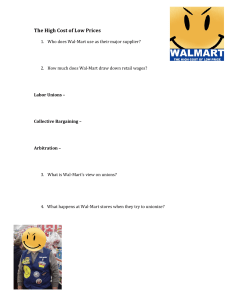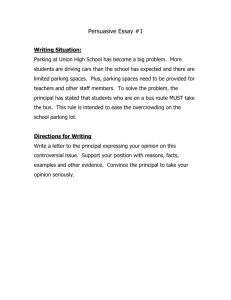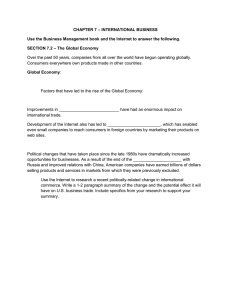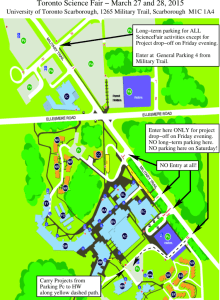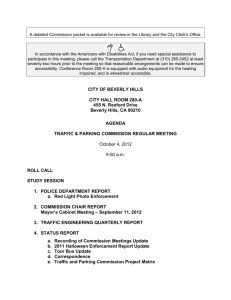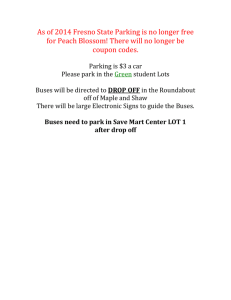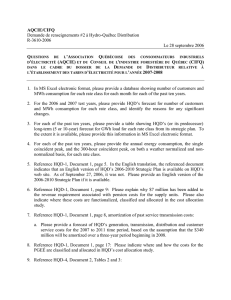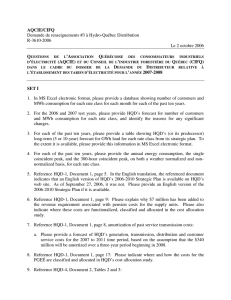Document 10433835
advertisement
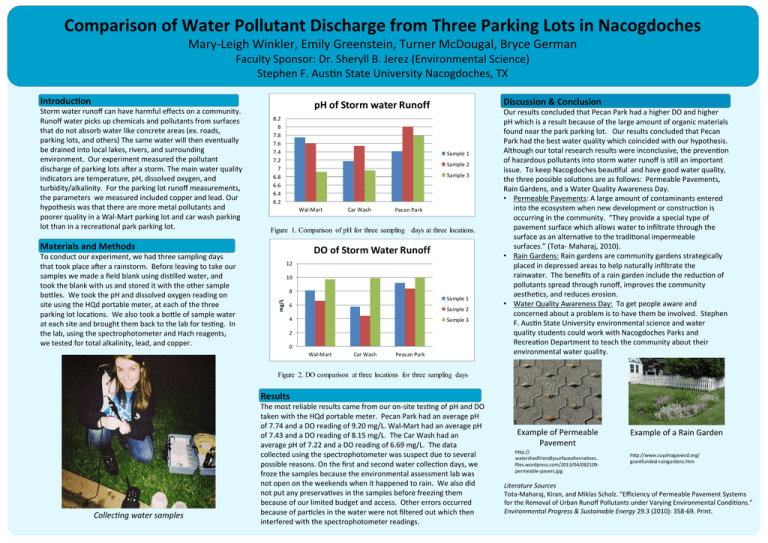
Comparison of Water Pollutant Discharge from Three Parking Lots in Nacogdoches Mary-­‐Leigh Winkler, Emily Greenstein, Turner McDougal, Bryce German Faculty Sponsor: Dr. Sheryll B. Jerez (Environmental Science) Stephen F. AusJn State University Nacogdoches, TX Introduc)on Storm water runoff can have harmful effects on a community. Runoff water picks up chemicals and pollutants from surfaces that do not absorb water like concrete areas (ex. roads, parking lots, and others) The same water will then eventually be drained into local lakes, rivers, and surrounding environment. Our experiment measured the pollutant discharge of parking lots aBer a storm. The main water quality indicators are temperature, pH, dissolved oxygen, and turbidity/alkalinity. For the parking lot runoff measurements, the parameters we measured included copper and lead. Our hypothesis was that there are more metal pollutants and poorer quality in a Wal-­‐Mart parking lot and car wash parking lot than in a recreaJonal park parking lot. pH of Storm water Runoff 8.2 8 7.8 7.6 7.4 7.2 7 6.8 6.6 6.4 6.2 Sample 1 Sample 2 Sample 3 Wal-­‐Mart Car Wash Peacan ark Pecan PPark Figure 1. Comparison of pH for three sampling days at three locations. Materials and Methods DO of Storm Water Runoff 12 10 8 mg/L To conduct our experiment, we had three sampling days that took place aBer a rainstorm. Before leaving to take our samples we made a field blank using disJlled water, and took the blank with us and stored it with the other sample boMles. We took the pH and dissolved oxygen reading on site using the HQd portable meter, at each of the three parking lot locaJons. We also took a boMle of sample water at each site and brought them back to the lab for tesJng. In the lab, using the spectrophotometer and Hach reagents, we tested for total alkalinity, lead, and copper. Discussion & Conclusion Sample 1 6 Sample 2 4 Sample 3 2 0 Wal-­‐Mart Car Wash Peacan Park Our results concluded that Pecan Park had a higher DO and higher pH which is a result because of the large amount of organic materials found near the park parking lot. Our results concluded that Pecan Park had the best water quality which coincided with our hypothesis. Although our total research results were inconclusive, the prevenJon of hazardous pollutants into storm water runoff is sJll an important issue. To keep Nacogdoches beauJful and have good water quality, the three possible soluJons are as follows: Permeable Pavements, Rain Gardens, and a Water Quality Awareness Day. • Permeable Pavements: A large amount of contaminants entered into the ecosystem when new development or construcJon is occurring in the community. “They provide a special type of pavement surface which allows water to infiltrate through the surface as an alternaJve to the tradiJonal impermeable surfaces.” (Tota-­‐ Maharaj, 2010). • Rain Gardens: Rain gardens are community gardens strategically placed in depressed areas to help naturally infiltrate the rainwater. The benefits of a rain garden include the reducJon of pollutants spread through runoff, improves the community aestheJcs, and reduces erosion. • Water Quality Awareness Day: To get people aware and concerned about a problem is to have them be involved. Stephen F. AusJn State University environmental science and water quality students could work with Nacogdoches Parks and RecreaJon Department to teach the community about their environmental water quality. Figure 2. DO comparison at three locations for three sampling days Results Collec8ng water samples The most reliable results came from our on-­‐site tesJng of pH and DO taken with the HQd portable meter. Pecan Park had an average pH of 7.74 and a DO reading of 9.20 mg/L. Wal-­‐Mart had an average pH of 7.43 and a DO reading of 8.15 mg/L. The Car Wash had an average pH of 7.22 and a DO reading of 6.69 mg/L. The data collected using the spectrophotometer was suspect due to several possible reasons. On the first and second water collecJon days, we froze the samples because the environmental assessment lab was not open on the weekends when it happened to rain. We also did not put any preservaJves in the samples before freezing them because of our limited budget and access. Other errors occurred because of parJcles in the water were not filtered out which then interfered with the spectrophotometer readings. Example of Permeable Pavement hMp:// watershedfriendlysurfacealternaJves. files.wordpress.com/2013/04/082109-­‐ permeable-­‐pavers.jpg Example of a Rain Garden hMp://www.cuyahogaswcd.org/ grannunded-­‐raingardens.htm Literature Sources Tota-­‐Maharaj, Kiran, and Miklas Scholz. "Efficiency of Permeable Pavement Systems for the Removal of Urban Runoff Pollutants under Varying Environmental CondiJons." Environmental Progress & Sustainable Energy 29.3 (2010): 358-­‐69. Print.
